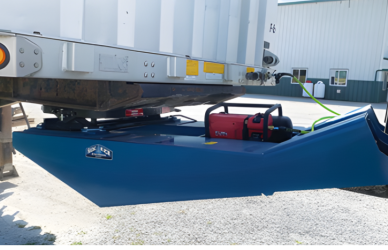As a truck driver, you spend countless hours on the road, often away from home and loved ones. The job can be physically demanding, mentally exhausting, and emotionally draining, which can all contribute to driver burnout. Below, we will dive into the symptoms of driver burnout, coping strategies, and prevention techniques to help you avoid burnout and maintain your well-being in and out of the cab.
Symptoms of Driver Burnout
Driver burnout is a state of physical, mental, and emotional exhaustion that can result from prolonged stress or overwork. The symptoms of burnout may vary from person to person, but some common signs include:
- Chronic fatigue or tiredness
- Insomnia or trouble sleeping
- Irritability or mood swings
- Reduced motivation or interest in work
- Difficulty concentrating or making decisions
- Physical symptoms such as headaches, muscle tension, or digestive issues
If you are experiencing any of these symptoms, it’s important to take action to prevent burnout from getting worse.
Coping Strategies for Driver Burnout
If you’re experiencing driver burnout, there are several coping strategies you can try to help manage your symptoms:
Take breaks
Taking frequent breaks can help reduce fatigue and improve concentration. Try to take a 15-20 minute break every 2-3 hours of driving to stretch, walk, or rest.
Prioritize self-care
Make sure to take care of your physical, emotional, and mental health. This includes eating healthy, getting enough sleep, and engaging in activities that bring you joy.
Stay connected
Try to stay in touch with loved ones and friends, even if you’re on the road. Social support can help reduce stress and prevent burnout.
Practice stress management techniques
Experiment with different stress management techniques such as deep breathing, meditation, or yoga. These practices can help you relax and manage stress more effectively. Keep reading for some tips on practicing mindfulness or meditation.
Seek professional help
If you’re feeling overwhelmed or struggling to cope with burnout, consider seeking professional help from a mental health provider. They can help you develop personalized coping strategies and provide support.
Mindfulness and Meditation for Truckers
Truckers can benefit greatly from mindfulness and meditation practices, which is why we’re including a dedicated portion of this article to go over this specifically. Mindfulness is the act of being present and fully engaged in the moment without judgment, while meditation is the practice of focusing your attention on a particular object or activity to achieve a mentally clear and emotionally calm state.
Research has shown that practicing mindfulness and meditation can help reduce stress, improve sleep quality, increase focus and concentration, and enhance overall well-being. These practices can also help truckers cope with the long hours on the road, feelings of isolation, and other stressors associated with their job.
Here are some mindfulness and meditation techniques that truckers can try:
Deep breathing
Take a few deep breaths and focus your attention on your breath. Breathe in through your nose, hold for a few seconds, and then exhale through your mouth.
Body scan
Lie down or sit comfortably and focus your attention on each part of your body, starting from your toes and moving up to your head. Notice any sensations, tension, or discomfort and try to release any tension you feel.
Mindful driving
Focus your attention on the road ahead, the sound of the engine, and the feel of the steering wheel in your hands. Avoid distractions like your phone or the radio and try to stay present in the moment.
Guided meditation
Use a guided meditation app or website to help you focus your attention and guide you through the practice of meditation.
By incorporating these mindfulness and meditation techniques into their daily routine, truckers can reduce stress, improve their well-being, and both cope with and prevent burnout.
Prevention Techniques for Driver Burnout
Preventing driver burnout is key to maintaining your well-being and job satisfaction. Here are some prevention techniques to consider:
Set realistic goals
Set realistic goals for yourself, both in terms of workload and time management. Be mindful of your own limits and pace yourself accordingly.
Maintain work-life balance
Make time for hobbies, social activities, and rest. These activities can help you recharge and prevent burnout.
Find support
Seek support from colleagues, friends, and family. Having a support system can help you manage stress and prevent burnout.
Stay organized
Staying organized can help you manage your workload more effectively and reduce stress. Consider using a planner or calendar to keep track of your schedule.
Take care of your physical health
Eating a balanced diet, exercising regularly, and getting enough sleep can all help reduce the risk of burnout.
Driver burnout is a serious issue that affects the well-being and safety of truckers on the road. By recognizing the symptoms of burnout, practicing self-care, and seeking support when needed, truckers can take proactive steps to prevent burnout and stay healthy and happy on the job. Remember, taking care of yourself is not a luxury but a necessity, and it can ultimately make you a better, safer driver.











